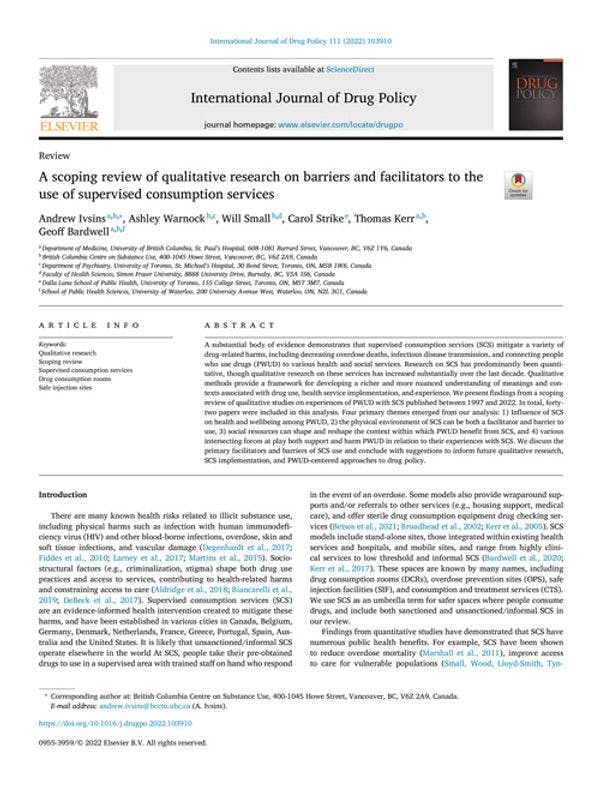Examen de la portée de la recherche qualitative sur les obstacles et les facilitateurs de l'utilisation des services de consommation supervisée
Ivsins et al. constatent que les personnes participantes soutiennent massivement ces services et mettent en lumière l'influence médiatrice des environnements physiques, des ressources sociales et de diverses forces structurelles. Pour en savoir plus, en anglais, veuillez lire les informations ci-dessous.
By Andrew Ivsins, Ashley Warnock, Will Small, Carol Strike, Thomas Kerr, Geoff Bardwell
Abstract
A substantial body of evidence demonstrates that supervised consumption services (SCS) mitigate a variety of drug-related harms, including decreasing overdose deaths, infectious disease transmission, and connecting people who use drugs (PWUD) to various health and social services. Research on SCS has predominantly been quantitative, though qualitative research on these services has increased substantially over the last decade. Qualitative methods provide a framework for developing a richer and more nuanced understanding of meanings and contexts associated with drug use, health service implementation, and experience. We present findings from a scoping review of qualitative studies on experiences of PWUD with SCS published between 1997 and 2022. In total, forty-two papers were included in this analysis. Four primary themes emerged from our analysis: 1) Influence of SCS on health and wellbeing among PWUD, 2) the physical environment of SCS can be both a facilitator and barrier to use, 3) social resources can shape and reshape the context within which PWUD benefit from SCS, and 4) various intersecting forces at play both support and harm PWUD in relation to their experiences with SCS. We discuss the primary facilitators and barriers of SCS use and conclude with suggestions to inform future qualitative research, SCS implementation, and PWUD-centered approaches to drug policy.
